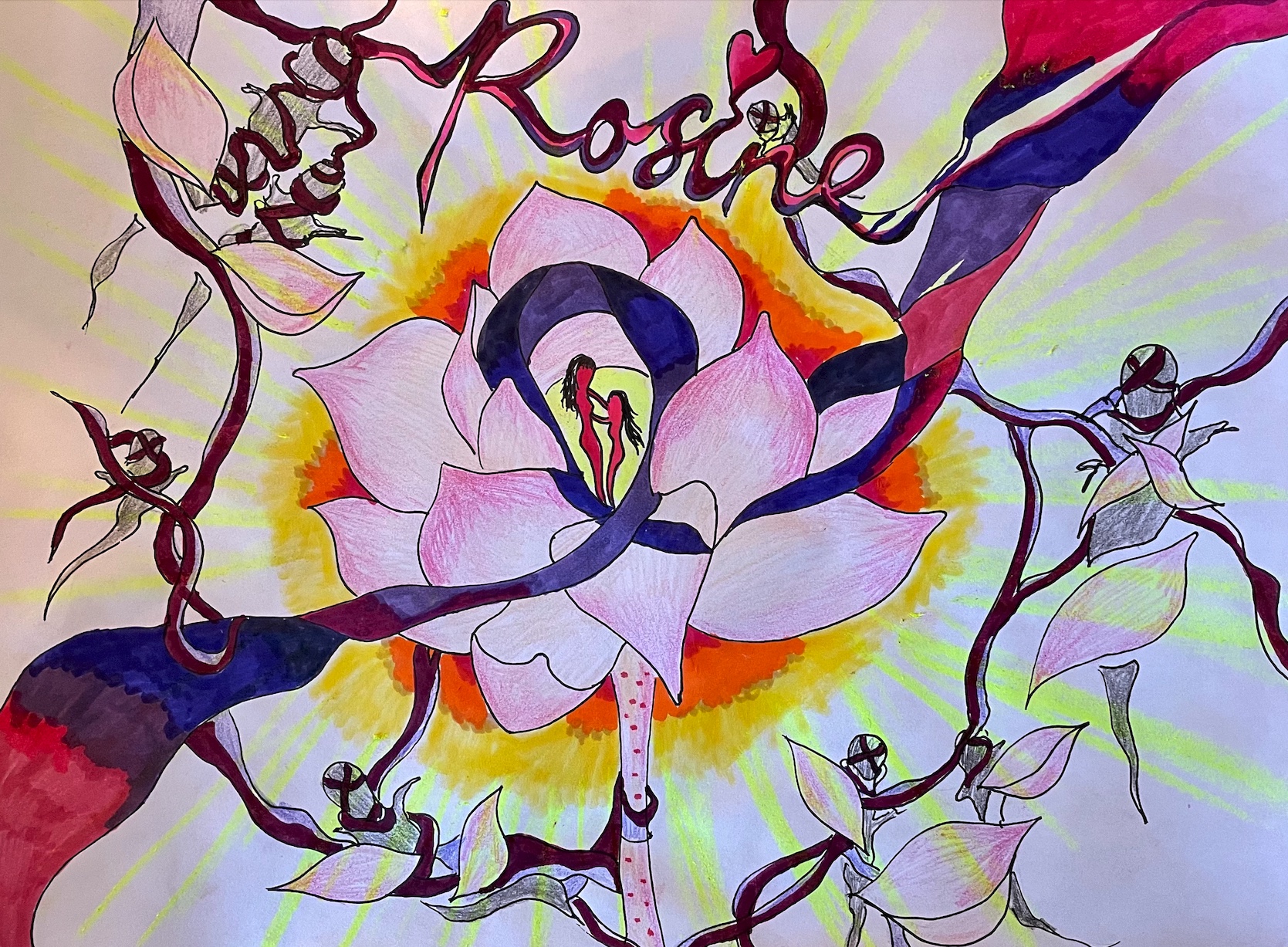Click here to read a collection of poems inspired by Sarah Elizabeth Smith’s case file. Artist Statement — A Discussion on Domestic Violence This series of four poems and the symbolic drawing aims to enrich the audience’s understanding of the life of Sarah Elizabeth Smith who was a survivor of domestic violence and one of… Continue reading Sarah Elizabeth Smith: An Open Secret of Silence
Eliza McDermot: When Reform Fails
By Journey Moore-Prewitt Eliza McDermot was an Irish woman from New York who was described as being attracted to “the love of dress & wicked amusement.” For women of the time, this attraction was criminalized, as it went against the gender roles so heavily enforced at the time. Instead of relying on men or being… Continue reading Eliza McDermot: When Reform Fails
Mary Snyder: Partial Lives Under Carceral Intimacies
By Serena Yang Mary Snyder was in her early thirties when she arrived at the Rosine on December 17th, 1851. By that time, Mary, who married at 16 years old, had spent more than half of her life in a deeply troubled marriage. Despite infidelity, disease, financial hardship, and incarceration, Mary remained married to her… Continue reading Mary Snyder: Partial Lives Under Carceral Intimacies
Speculative Narration of Emma Kithcard and Isabella Taylor
By Cheaka Wilson After including a lengthy piece of speculative narration about the relationship between two women confined to the Fulton County chain gang in the 1850s in her book, No Mercy Here: Gender, Punishment, and the Making of Jim Crow Modernity, historian Sarah Haley admits that its purpose is “not an attempt to romanticize… Continue reading Speculative Narration of Emma Kithcard and Isabella Taylor
Flora Foster: Exploitation in the 19th Century
By Diddy Vance On December 15th, 1855, the Rosine Association became a safe haven for Flora Foster, a young woman who had been suffering from abuse at the hands of her spouse throughout their marriage. I would like to start by noting that I refer to Foster as a “young woman” for continuity purposes, but… Continue reading Flora Foster: Exploitation in the 19th Century
Edith Hartman: Gendered Criminalization of Assault/Violence
By Vivian Guo When I was reading Edith Hartman’s case file created by the Rosine Association, I tried to imagine myself in Edith’s shoes. She endured an arduous life and experienced many hardships that a lot of people today probably have never encountered. Edith was born in France but moved to the United States when… Continue reading Edith Hartman: Gendered Criminalization of Assault/Violence
Catherine Carr
Fabric Faults[1] By Anonymous It was the third time that the woman returned with the guard when she finally told Catherine Carr, “You can leave now.” Relieved, Catherine thought of the other prisoners who must have stayed there longer. She had expected that they would let her out after a few days, knowing that Alder… Continue reading Catherine Carr
Emma Williams: What is the worth of good intentions?
By Sonia Linares The documented life of Emma Williams, through the casebooks of the Rosine Association, is framed by the words of Mira Sharpless Townsend, “She [Emma Williams] had made many good resolutions in person, but how was she to keep them.” [1] This important question continues to be an essential point in conversations of… Continue reading Emma Williams: What is the worth of good intentions?
Susanna Hudson – Growing Pains
By Li Dong Dear Diary, I got into a fight with brother today, so I ran away from the place he had me staying at. I wish I could go back home to mother and stay with her, but I’m not quite sure where she is staying or if mama is in trouble. I wish… Continue reading Susanna Hudson – Growing Pains
Julia McDonald: Theaters, Sex Work, and Reform
By Lily Fournier The life of Julia McDonald, as documented by case workers at the Rosine Association, provides a window into the frustration and despair of 19th century women who attempted to live outside of the domestic sphere prescribed to them. Born in the 1820s and orphaned at an early age, McDonald attempted to create… Continue reading Julia McDonald: Theaters, Sex Work, and Reform
